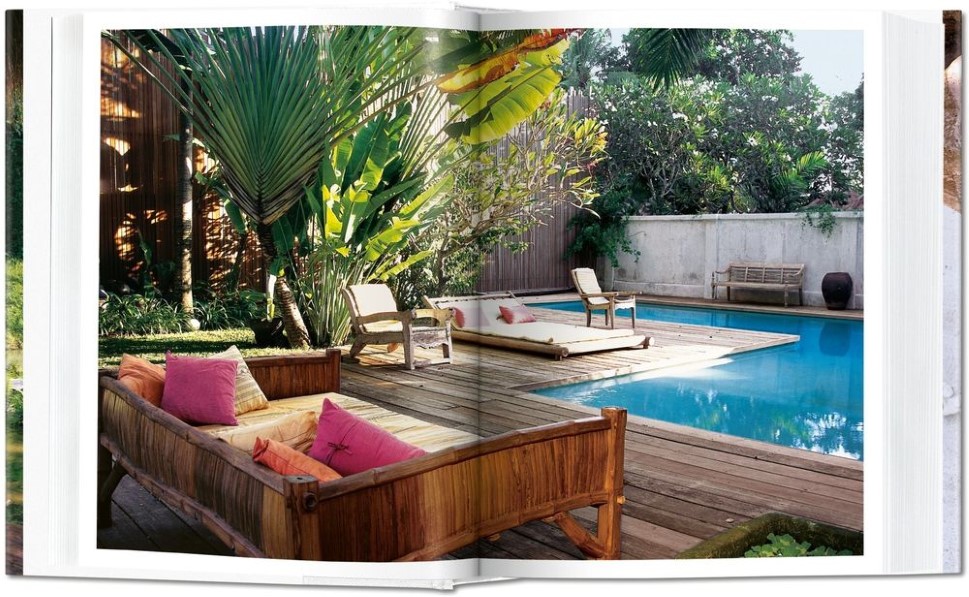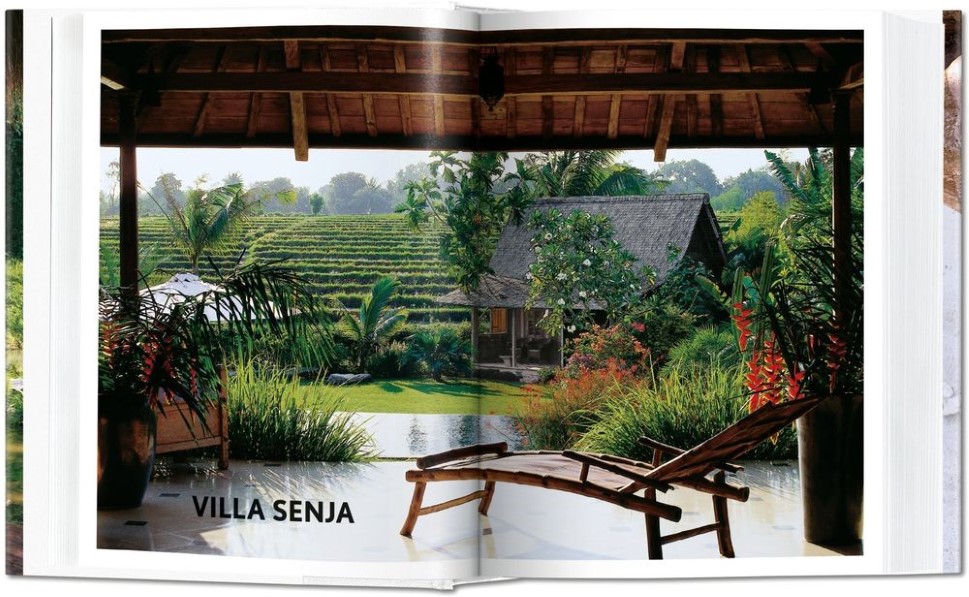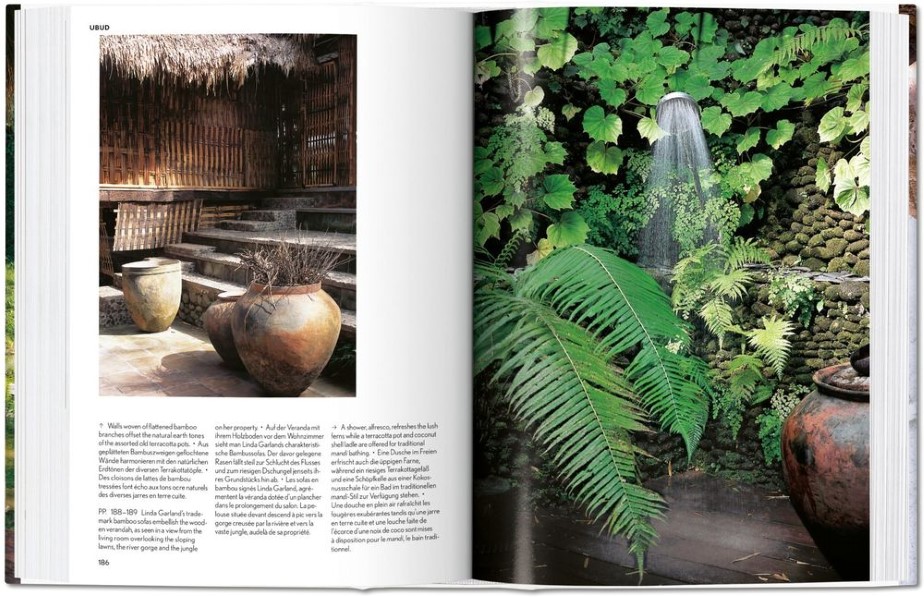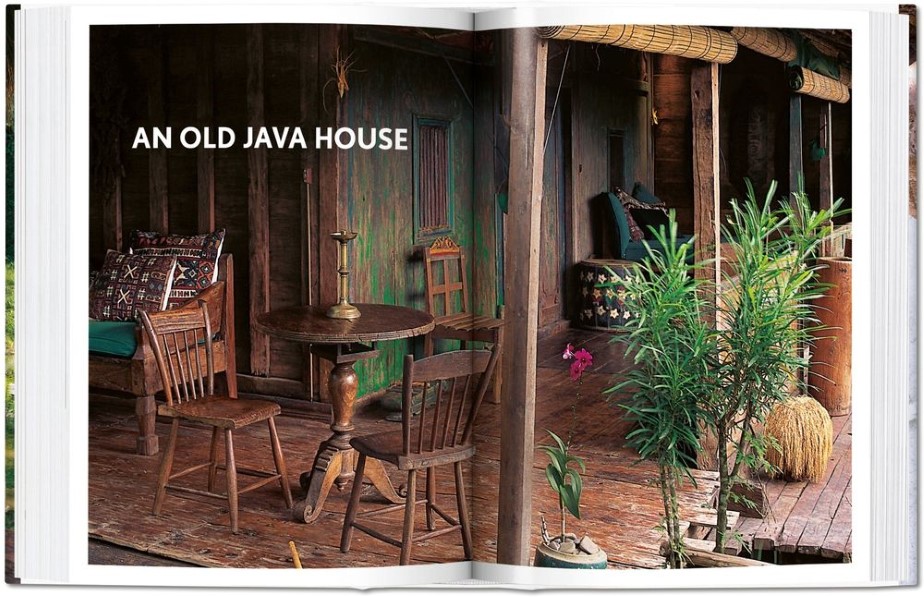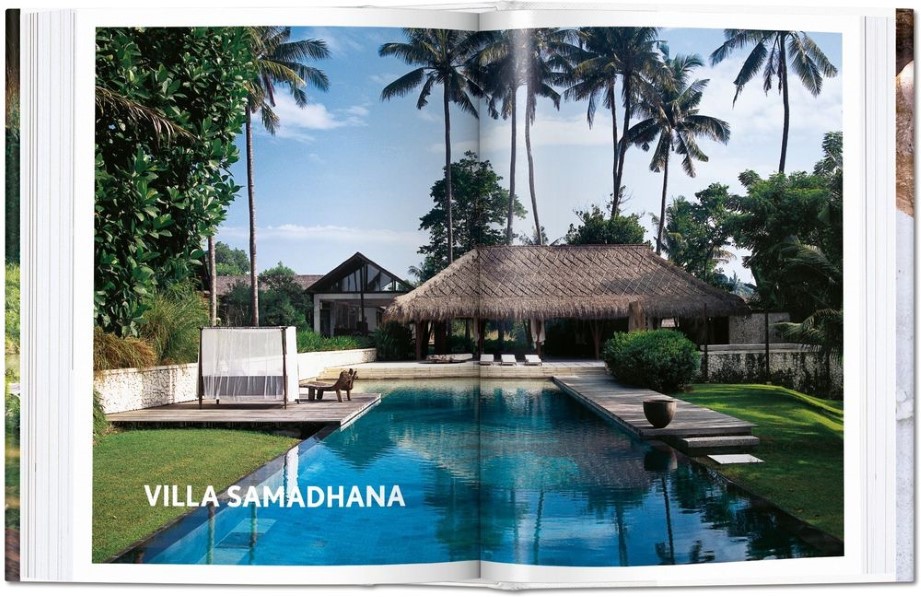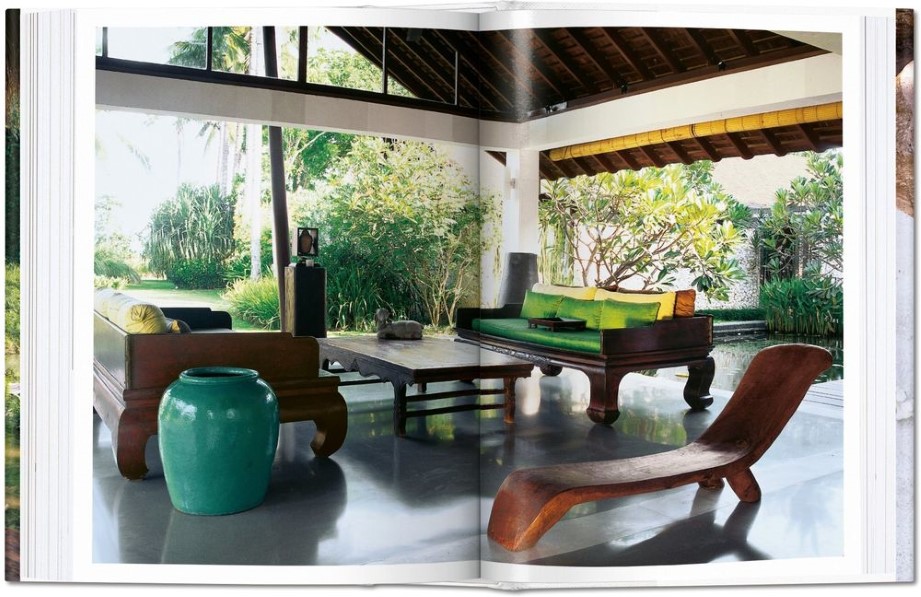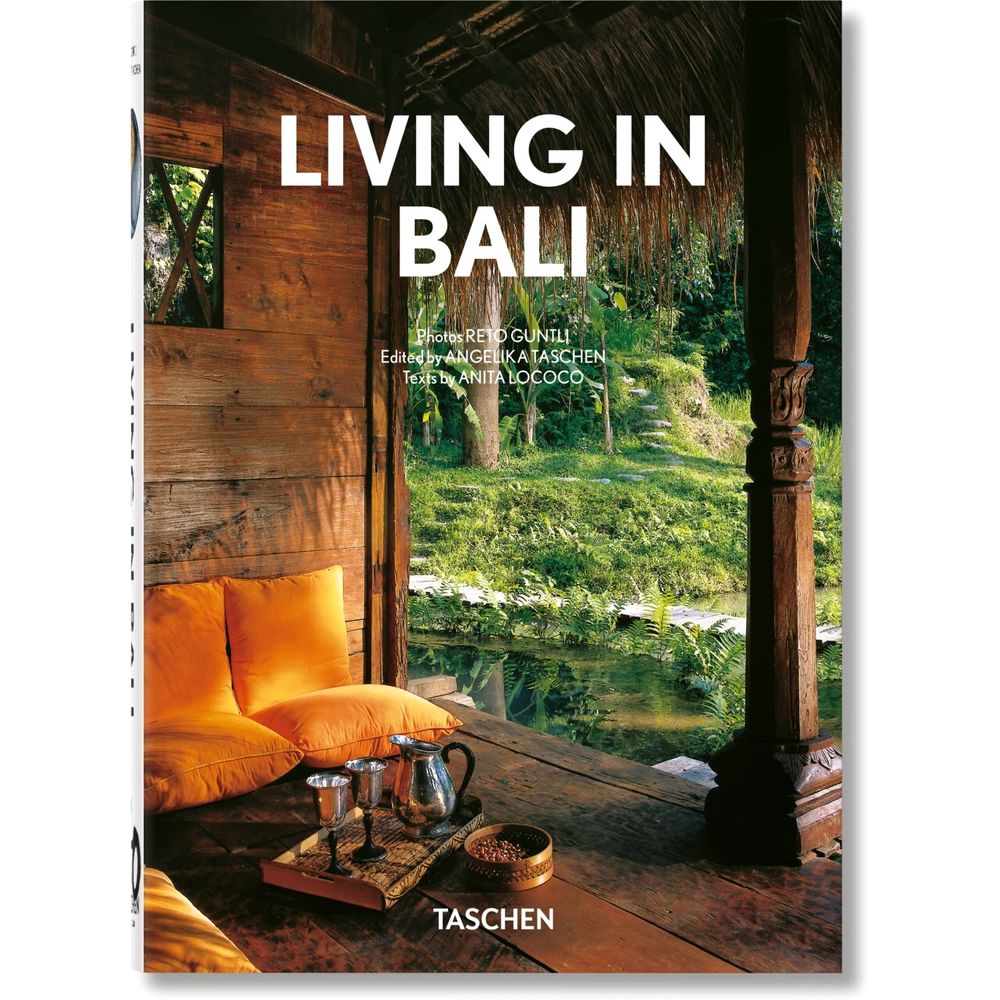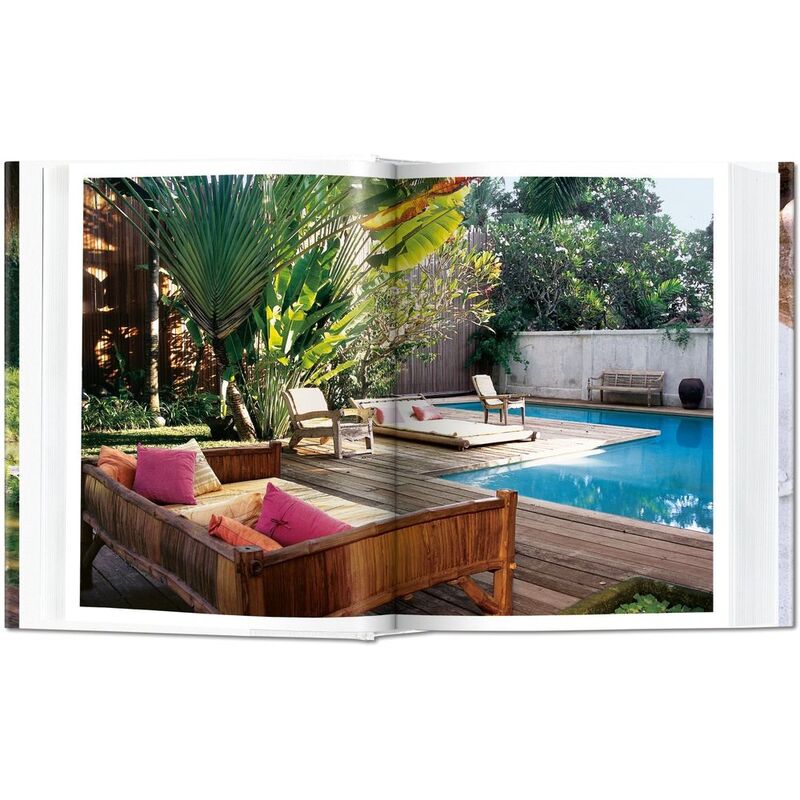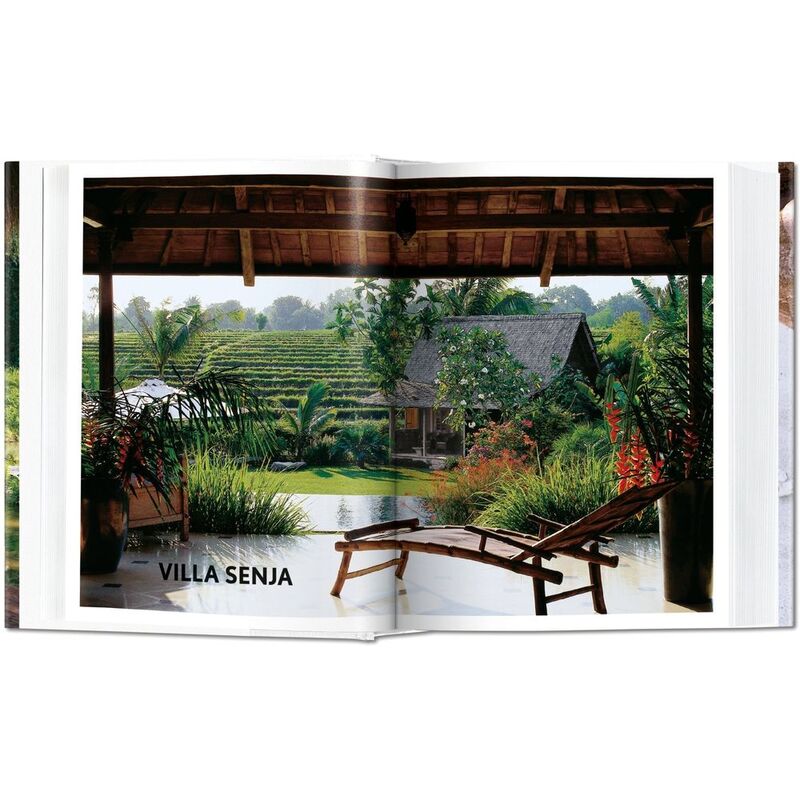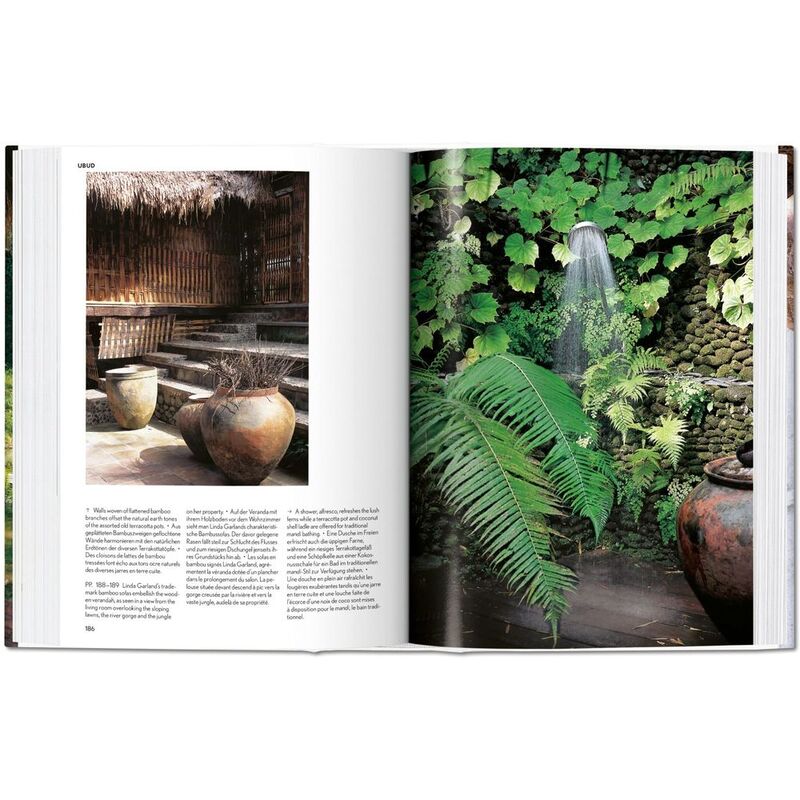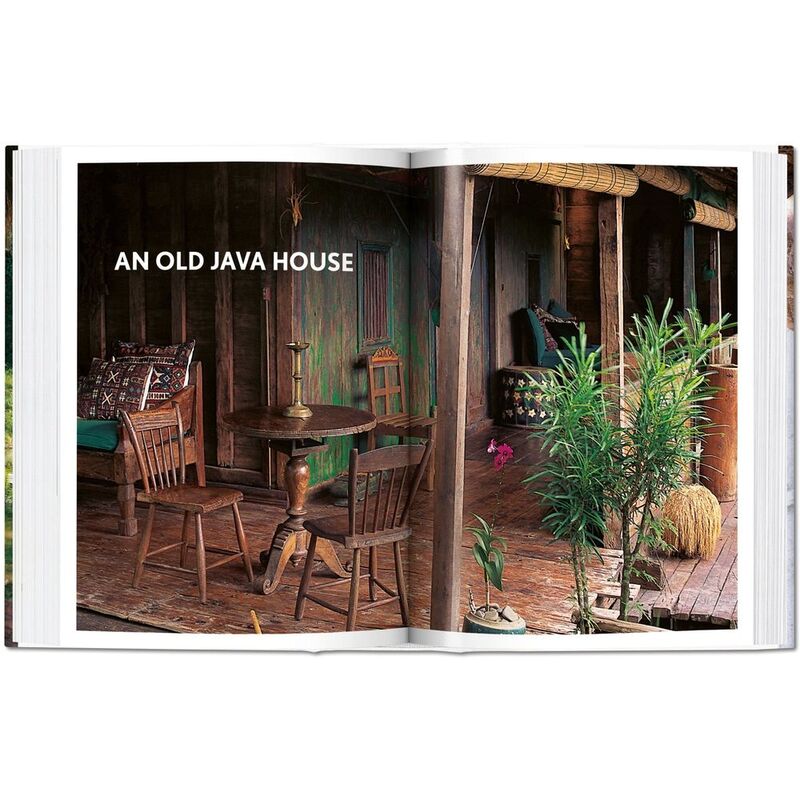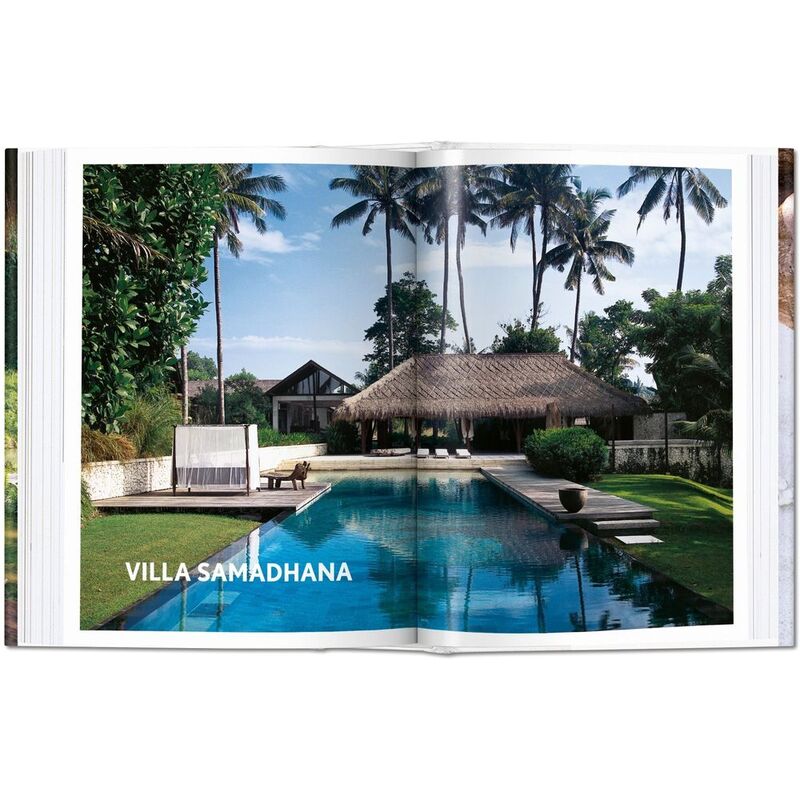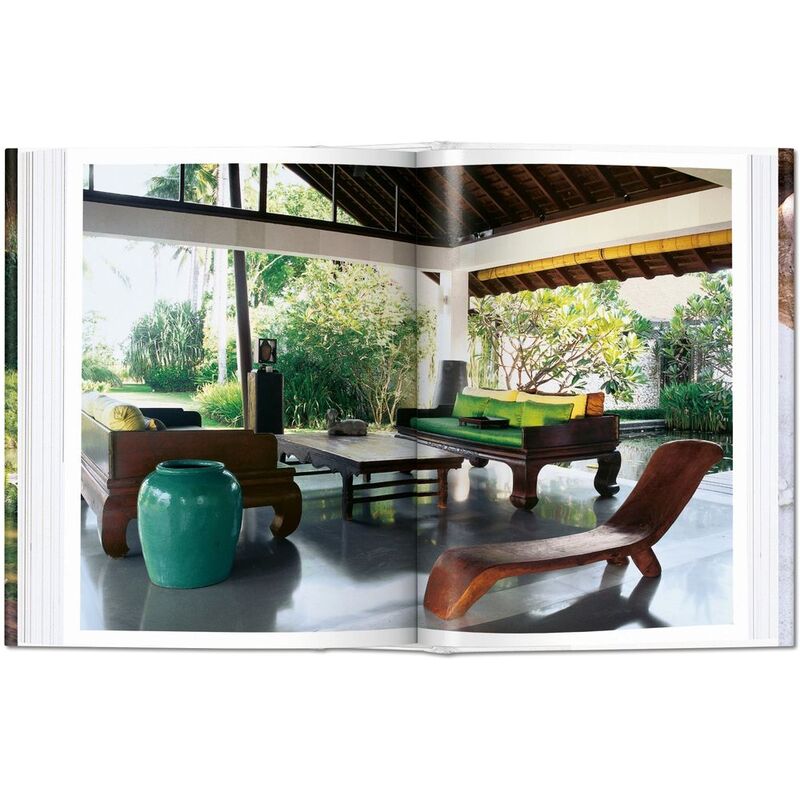author: Anita Lococo
Coffee Table Book
2022-04-19
تاشين جي إم بي إتش
Living in Bali (40th Edition) | Reto Guntli / Anita Lococo / Angelika Taschen
أداة العثور على المتجر
In a World Without Walls
Balinese homes in harmony with nature
Loved by travelers for its lush tropical scenery and charming people, Bali is one of the most magnificent places on Earth. Spirituality and nature are integral parts of everyday life for the Balinese, so one can easily see why the island's traditional architecture has a peaceful presence to it, mimicking its surroundings and sometimes blending in with them.
When it comes to Balinese houses, walls are not compulsory, wood is everywhere, earth tones are dominant, and thatched roofs abound. Opening onto gorgeous green landscapes, majestic mountains, or beautiful coastlines, the homes herein ooze relaxing, contemplative vibes. This portfolio of Southeast Asian living features a swath of fresh and inspiring photographs and comes in a compact size, so you can take a little bit of paradise with you wherever you go.
Gazing at these opulent examples of simple and elegant living, it's a wonder why more people aren't rushing to move to Bali.
The photographer
Swiss photographer Reto Guntli, based in Zurich, regularly travels the world shooting for international magazines. He has published numerous books and contributed to such TASCHEN publications as Inside Asia, Living in Japan, Living in Bali, Great Escapes Asia and Great Escapes Europe.
The author
Anita Lococo decided to make Bali her home 25 years ago. She has worked as a scout for Architectural Digest and has written many articles about life-style and interiors in Bali for numerous international magazines. British Traveller named her the expert for Bali travels.
The editor
Angelika Taschen studied art history and German literature in Heidelberg, gaining her doctorate in 1986. Working for TASCHEN from 1987, she has published numerous titles on art, architecture, photography, design, travel, and lifestyle.
Living in Bali. 40th Ed.
Reto Guntli, Anita Lococo, Angelika Taschen
- Hardcover
- 1 x 8.5 in., 2.62 lb
- 456 pages
- ISBN 978-3-8365-9001-3
In a World Without Walls
Balinese homes in harmony with nature
Loved by travelers for its lush tropical scenery and charming people, Bali is one of the most magnificent places on Earth. Spirituality and nature are integral parts of everyday life for the Balinese, so one can easily see why the island's traditional architecture has a peaceful presence to it, mimicking its surroundings and sometimes blending in with them.
When it comes to Balinese houses, walls are not compulsory, wood is everywhere, earth tones are dominant, and thatched roofs abound. Opening onto gorgeous green landscapes, majestic mountains, or beautiful coastlines, the homes herein ooze relaxing, contemplative vibes. This portfolio of Southeast Asian living features a swath of fresh and inspiring photographs and comes in a compact size, so you can take a little bit of paradise with you wherever you go.
Gazing at these opulent examples of simple and elegant living, it's a wonder why more people aren't rushing to move to Bali.
The photographer
Swiss photographer Reto Guntli, based in Zurich, regularly travels the world shooting for international magazines. He has published numerous books and contributed to such TASCHEN publications as Inside Asia, Living in Japan, Living in Bali, Great Escapes Asia and Great Escapes Europe.
The author
Anita Lococo decided to make Bali her home 25 years ago. She has worked as a scout for Architectural Digest and has written many articles about life-style and interiors in Bali for numerous international magazines. British Traveller named her the expert for Bali travels.
The editor
Angelika Taschen studied art history and German literature in Heidelberg, gaining her doctorate in 1986. Working for TASCHEN from 1987, she has published numerous titles on art, architecture, photography, design, travel, and lifestyle.
Living in Bali. 40th Ed.
Reto Guntli, Anita Lococo, Angelika Taschen
- Hardcover
- 1 x 8.5 in., 2.62 lb
- 456 pages
- ISBN 978-3-8365-9001-3
صالة عرض
